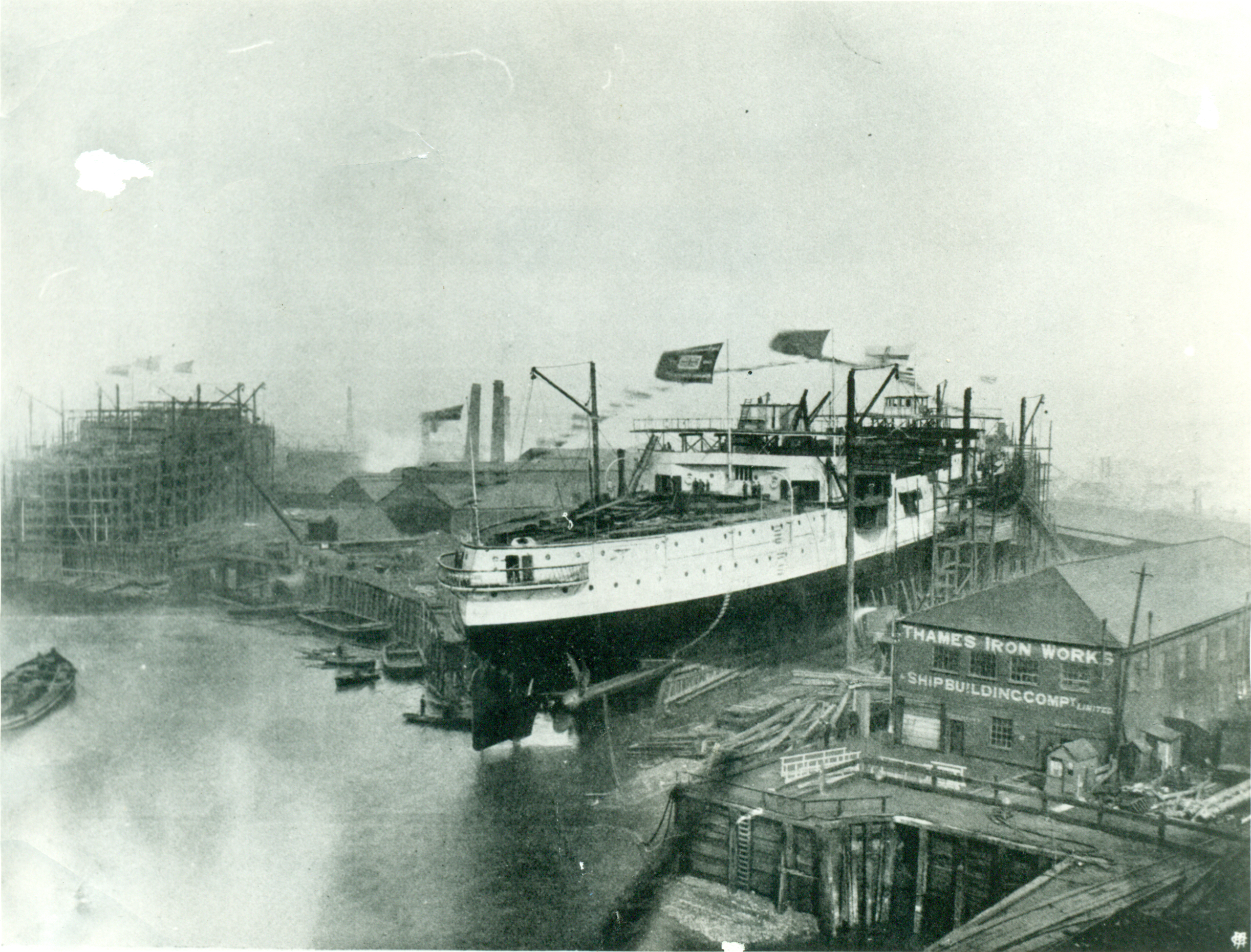Businesses

Thames Ironworks
Thames Ironworks originated in 1837 as the Ditchburn and Mare Shipbuilding Company in Deptford. One year later, it moved north of the river, near to Bow Creek, where it remained until its closure in 1912. In 1857 the company was acquired by Peter Rolt and re-named Thames Ironworks and Shipbuilding and Engineering Company Ltd; over that decade it became the largest ship builder on the Thames.
Described as the Leviathan Workshop by the Mechanics’ Magazine in 1861, it mainly produced warships, receiving commissions from the Admiralty, countries part of the Ottoman Empire, as well as Italy, Portugal, and Japan. Towards the turn of the century, Thames Ironworks was also involved in civic engineering projects, and when the company was facing a time of crisis, an increasingly important part of the company's revenues came from the production of lifeboats for the Royal National Lifeboat Institute.
For almost 80 years, Thames Ironworks played a core role in the life of the docks as of the major employer of the area with up to 6,000 employees. The 1890’s was the decade that witnessed deepest changes in working conditions, mostly due to the figure of Arnold Hills. Philanthropist, sportsman, president of the vegetarian society (of which Gandhi was a member and an admirer of Hills’ dedication), Hills joined the board of directors in 1880 and became the managing director a few years later, changing the face of the company employment practice.
The late 1880’s were a time of great conflict between workers and employers in the docks, with strikes taking place regularly from 1888 to 1891. As the Thames Ironworks Quarterly Gazette reported “strike fever was in the air and West Ham took the infection badly. The Thames Ironworkers were the worst sufferers” and engineerings also joined the strike. Hills was strongly criticised for employing non-union men during the strike. As a consequence, Hills decided that changes were needed. He introduced a 8-hours day for his employers, at a time when 10 to 12 hours shifts were the norm and he created the 'Good Fellowship scheme’ a system of bonuses on the top of normal wages. Moreover, he decided that the factory should not only be a working place, but also became the centre of social and sport activities for the community.
Hills invested in the formation of many types of work clubs, from a rowing club to a brass band, but arguably his most important endeavour was the foundations of the Thames Ironworks Football club in 1895. Within four years, the employees only team had entered the FA Cup and won the London League twice. In the summer of 1900, as a consequence of the committee’s decision to employ professionals, the team reformed under the new name of West Ham United, which has played with great success in the premier league ever since.
The company closed in 1912 as a consequence of competition with northern and foreign shipyards, the economic crisis and lack of new orders from the Admiralty.
Image: Courtesy of Newham Archives


